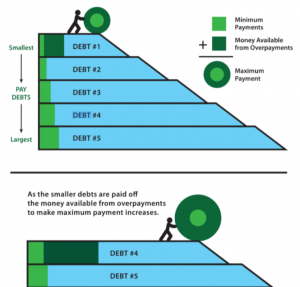
I remember early in my financial planning career that a commonly expressed goal was to retire early, say at age 55. Retiring early may still be an aspiration for many today. And surely, some people do achieve that lofty goal. But I’ve often wondered why it was that so many wanted to quit working. Was that a good goal to strive for?
Work often gives us a sense of identity. Why would we want to walk away from that? Is it the stress and aggravations that cause people to want to stop working, to exit the rat race? Work is often challenging and difficult. It is, after all, work. Who wouldn’t want to avoid all of that? But is that realistic? Can we avoid, much less, eliminate stress and aggravation. Psalm 34:20 says, “Many are the troubles of the righteous.”
When it comes to working, I think it is important to identify and isolate the source of frustrations. The root cause is found in the answer to the question, “Why do you work?” Of course, you must provide for your loved ones. But, is your driving motivation to advance up the corporate ladder and make as much money as you can? If so, then stress is what you should expect.
But, can you think of work this way: God gives you everything including the talents, abilities, drives and desires you have that lead you to work. Phillipians 2:13 tells us that “God is the one who, for His good purpose, works in you both to desire and to work.” Your role, then, as a disciple is to utilize those talents and desires as best you can to serve others, leaving advancement and material reward up to God. This puts work on a spiritual plane. That is a wholly different perspective.
Thomas Merton in No Man Is An Island, puts it this way, “Agitation is the force of fear or elemental greed for money, or pleasure, or power. In order to defend ourselves from agitation, we must be detached from immediate results of our work…from wealth and security, from pleasures and possessions…seeking first the kingdom of God and trusting that all our material needs will be taken care of.” (110)
This seeking first the kingdom, putting God first, puts the stresses of work in their proper place. We can now accept the aggravations and see them as opportunities for self-learning and growth. We can give them to God, and trust that He will use them for our good, to make us better and more productive, and to help us bring others closer to Him as we serve them.
With this attitude toward work, is retiring at 55 still a meaningful goal? Is retiring at all a worthy goal? Did you know that there is no scriptural basis for retirement? Actually, it is quite the opposite. Sirach 11:20 tells us to grow old while doing our work.
What Will You Retire To?
Not retiring does not mean remaining stuck in the same drudgery day after day until you die. But now a more worthy retirement goal can become to accumulate enough financial resources so that you can do work that helps bring more meaning and purpose to your life. Maybe that is taking a lower paying job at a non-profit, or non-paying volunteerism. The key question now is not what will you retire from, but what will you retire to?
Many of the clients I served found that once they retired, they became bored. There are only so many rounds of golf one can play in a week. Essentially, they would “un-retire”. They’d go find work that they felt added value to the community and to themselves. What will that be for you?
Think about your work and why you do it. Lift up your work, and your colleagues and customers to God, thanking and praising Him for the blessings and benefits of work. Ask God for the wisdom to know how best to use the talents He gives you, and then the courage to act, to do what will help them, and so bring glory to God. St. Augustine said, “Whatever you do, do it well, and you have praised God.” Have this view of work and see if you still want to retire early – if at all!
#Retirement

 Psalm 116:12 How can I repay the LORD for all the great good done for me?
Psalm 116:12 How can I repay the LORD for all the great good done for me?

